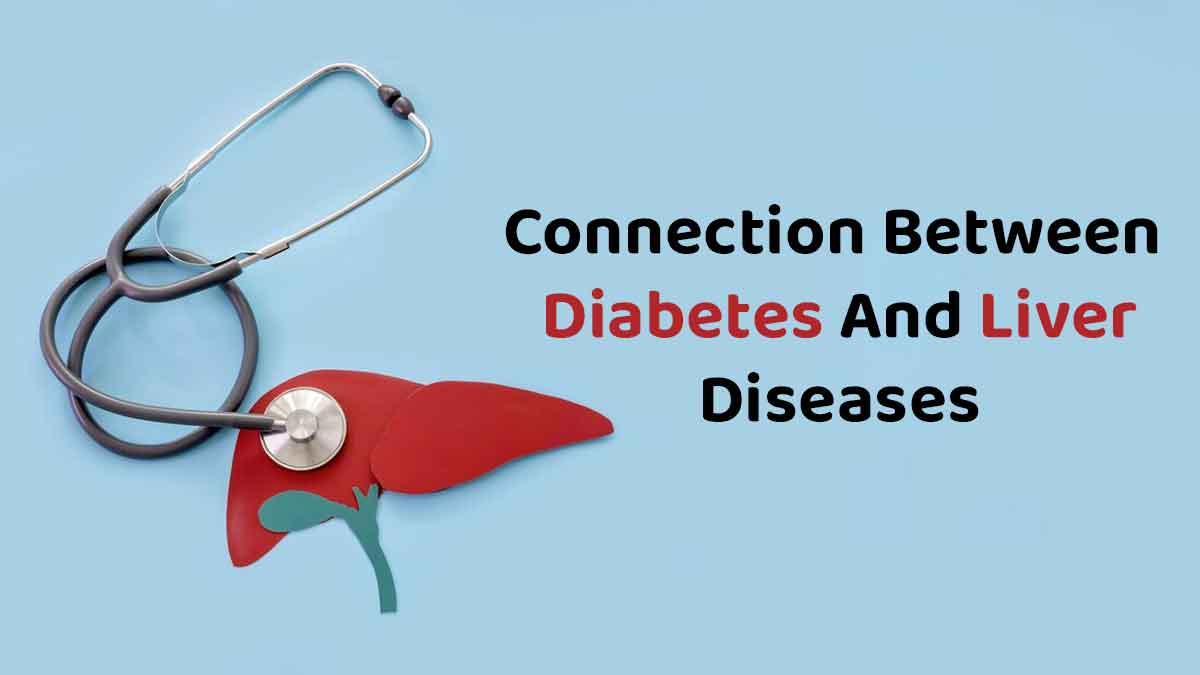
Diabetes, abdominal obesity, being overweight, elevated blood pressure, high triglyceride levels, low levels of HDL cholesterol, or raised levels of total cholesterol – all form a syndrome of metabolic syndrome. Of these, diabetes is an extremely important condition that leads to an elevated blood sugar level, which is mainly of two types: Type 1 diabetes and type 2 diabetes, and both can play a role in liver-related complications.
To understand the connection between diabetes and liver disease, we spoke to Dr Rajiv Lochan J, Lead Consultant - HPB and Liver Transplantation Surgery, Manipal Hospital Old Airport Road and Yeshwanthpur, Bengaluru, who shared insights on the same.
The Relationship Between Diabetes and Liver Disease

Diabetes generally occurs as a part of a larger metabolic syndrome where there is abnormal obesity or overall increased weight or raised BMI and raised and abnormal hip-to-waist ratio. “There is generally insulin resistance, a condition in which the body's cells become less responsive to the effects of insulin, which is secreted by the pancreas”, said Dr Lochan.
According to the World Journal of Gastroenterology (WJG), As many as 96% of individuals with cirrhosis could experience difficulty processing glucose, and approximately 30% might have diabetes with noticeable clinical symptoms.
Also Read: Managing Type 1 Diabetes: Expert Lists Dietary Tips For People To Regulate Blood Sugar Levels
Insulin Resistance and Type 2 Diabetes
Insulin resistance is a key factor in the development of type 2 diabetes and is also associated with other types of liver-related complications.
“When the peripheral cells (the rest of the cells in the body) other than the liver resist the action of insulin, the liver may produce more glucose leading to elevated blood sugar levels in type 2 diabetes”, added Dr Lochan.
Type 1 Diabetes and Liver Complications
Type 1 Diabetes is primarily an autoimmune condition affecting the pancreas. Individuals with type 1 diabetes can also develop liver-related complications. Type 1 diabetes can be associated with other autoimmune processes or other diseases related to the thyroid and so on.
Mechanisms Leading to Liver Problems

“Essentially, both type 1 and type 2 diabetes can result in liver-related problems due to multiple physiologic or biochemical pathways. Insulin resistance is one of them and increased fat accumulation within the liver can result in fatty liver disease”, emphasised Dr Lochan.
When it gets more severe, it may also lead to inflammation in the liver, called hepatitis, and a combination of both conditions is called NASH (Nonalcoholic Steatohepatitis) or MASH (Metabolic Dysfunction-Associated Steatohepatitis).
Also Read: Reversing Prediabetes: Expert Explains How Can Diet And Exercise Reverse Prediabetes
Advanced Consequences
Raised blood sugar levels lead to the formation of Advanced Glycation End Products (AGEs). “These AGEs can contribute to inflammation and oxidative stress in the liver, resulting in liver fat accumulation, inflammation, and fibrosis. In advanced cases, cirrhosis may develop, and in rare conditions, hepatocellular carcinoma may occur, said Dr Lochan.
Risk Factors and Management

However, it is important to note that not everyone with diabetes will develop significant liver disease and the risk varies with individuals. Additional lifestyle factors, such as diet, physical activity, alcohol consumption, presence of other liver-related risk factors like Hepatitis B or C play crucial roles in the development and progression of liver disease in individuals with diabetes.
Managing Diabetes and Liver Complications
Managing diabetes through lifestyle modifications, medication, and regular medical monitoring is essential to reduce the risk of liver-related complications. Individuals with diabetes should work closely with the health care team, especially the gastroenterologist and hepatologist, if they have any early symptoms of liver disease.
Early Detection
Dr Lochan added, “In most cases, unfortunately, there are no early symptoms of liver disease. There can be early signs and symptoms and lab findings, for example, abnormal liver function tests or fatty liver disease being identified on ultrasound scans.” These findings will need further investigations with a fibro scan or other tests and consultation with a specialist liver team to identify the early presence or development of diabetes-related liver problems.
[Disclaimer: This article contains information provided by a registered healthcare professional and is for informational purposes only. Hence, we advise you to consult your expert for necessary medical treatment.]







